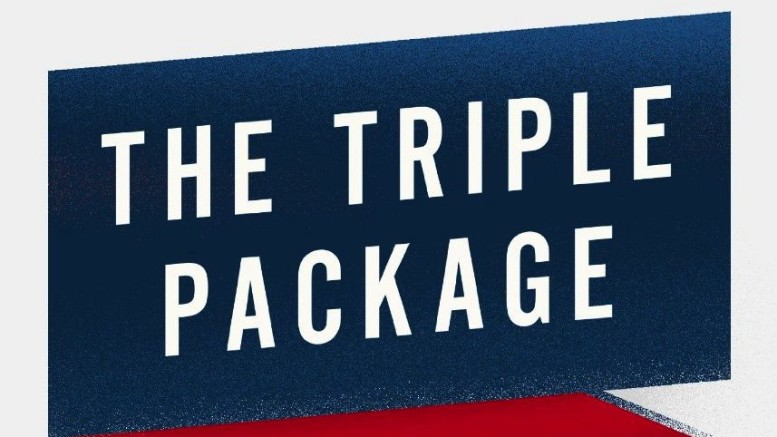By: Peter Chew
 Amy Chua, author of the controversial The Battle Hymn of the Tiger Mother, delineates the three traits she views as necessary for driving success in model minority groups in her new book The Triple Package. Amy Chua and her husband Jed Rubenfield analyze the perception of model minorities in the United States and also break down the drivers of their success: a combination of three cultural traits the pair call “Superiority Complex”, “Insecurity”, and “Impulse Control”. The book dubs these traits the Triple Package, and uses this to explain the performance of groups belonging to each extreme of the socioeconomic spectrum, citing numerous examples from East Asian, Jewish, African, and Anglo-Saxon populations.
Amy Chua, author of the controversial The Battle Hymn of the Tiger Mother, delineates the three traits she views as necessary for driving success in model minority groups in her new book The Triple Package. Amy Chua and her husband Jed Rubenfield analyze the perception of model minorities in the United States and also break down the drivers of their success: a combination of three cultural traits the pair call “Superiority Complex”, “Insecurity”, and “Impulse Control”. The book dubs these traits the Triple Package, and uses this to explain the performance of groups belonging to each extreme of the socioeconomic spectrum, citing numerous examples from East Asian, Jewish, African, and Anglo-Saxon populations.
The book is sometimes lofty and decidedly heavy-handed in imposing the Triple Package concept both on economically successful groups and those in poverty. But, there is no denying that Amy Chua and Jed Rubenfield are lucid, unequivocal, and rational. They take care to step around the most common pitfalls that litter racial debates. Measures of pointed, succinct commentary explaining how the “Triple Package” interacts with the real world accompany the slews of presented evidence pointing to a growing disparity between those moving upwards in American society and those stagnating. The book also works to expand its Triple Package thesis to include the successes of individuals such as Steve Jobs, whom some think was motivated partly due to his childhood as an adopted child. In the deeper analysis of each of the Triple Package traits, Rubenfield and Chua also discuss the darker paths of such traits. They caution that, if not held in delicate balance, the traits will lead to consequences such as depression and ostracism from society.
Such writing is, without doubt, apt to spark controversy. The very introduction acknowledges, “That certain groups do much better in America – as measured by income, occupational status, test scores, and so on – is difficult to talk about.” The thesis that The Triple Package contains is fresh out of the incubator. Some will find truths and others will see a paradigm that is truly alien. Portions of the book do fall into gross generalization and the authors would have done well to include direct citations of their sources more often. At other times what is really commentary on the basis of the unproven Triple Package can be easily mistaken for asserted fact.
The Triple Package is by no means the best-written social analysis out there. But, its bold stance brings fresh material to a debate that begs for proper attention in America – causes of economic success. If there is one thing in the book that is undoubtedly true, it is the assertion that we ignore facts and sound arguments based upon them at our own peril. The arguments made in The Triple Package are well-supported and warrant discussion. If you get a chance, it’s worth at least a look.
Rating: B
Photo: www.amazon.com


Be the first to comment on "Review: The Triple Package"